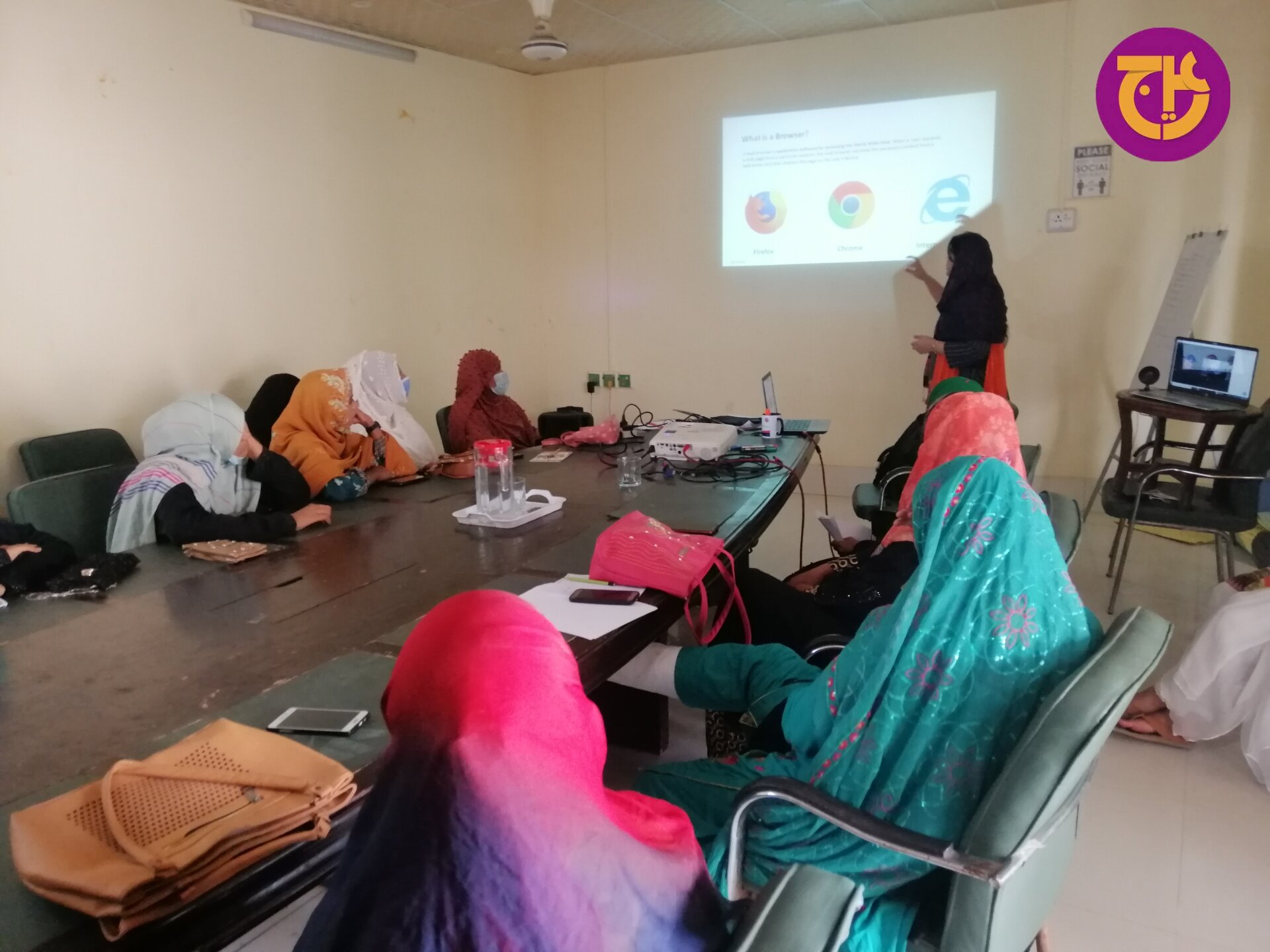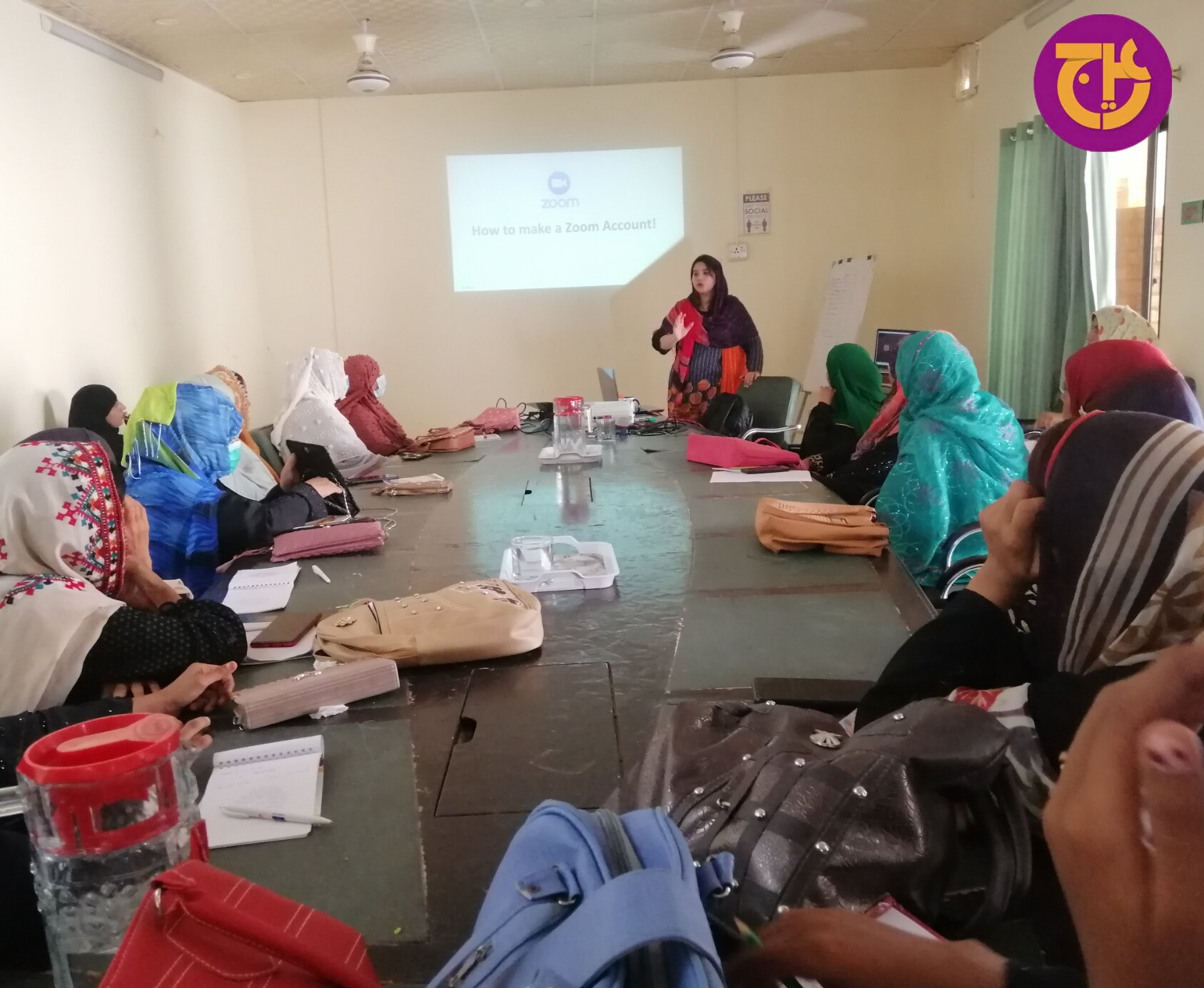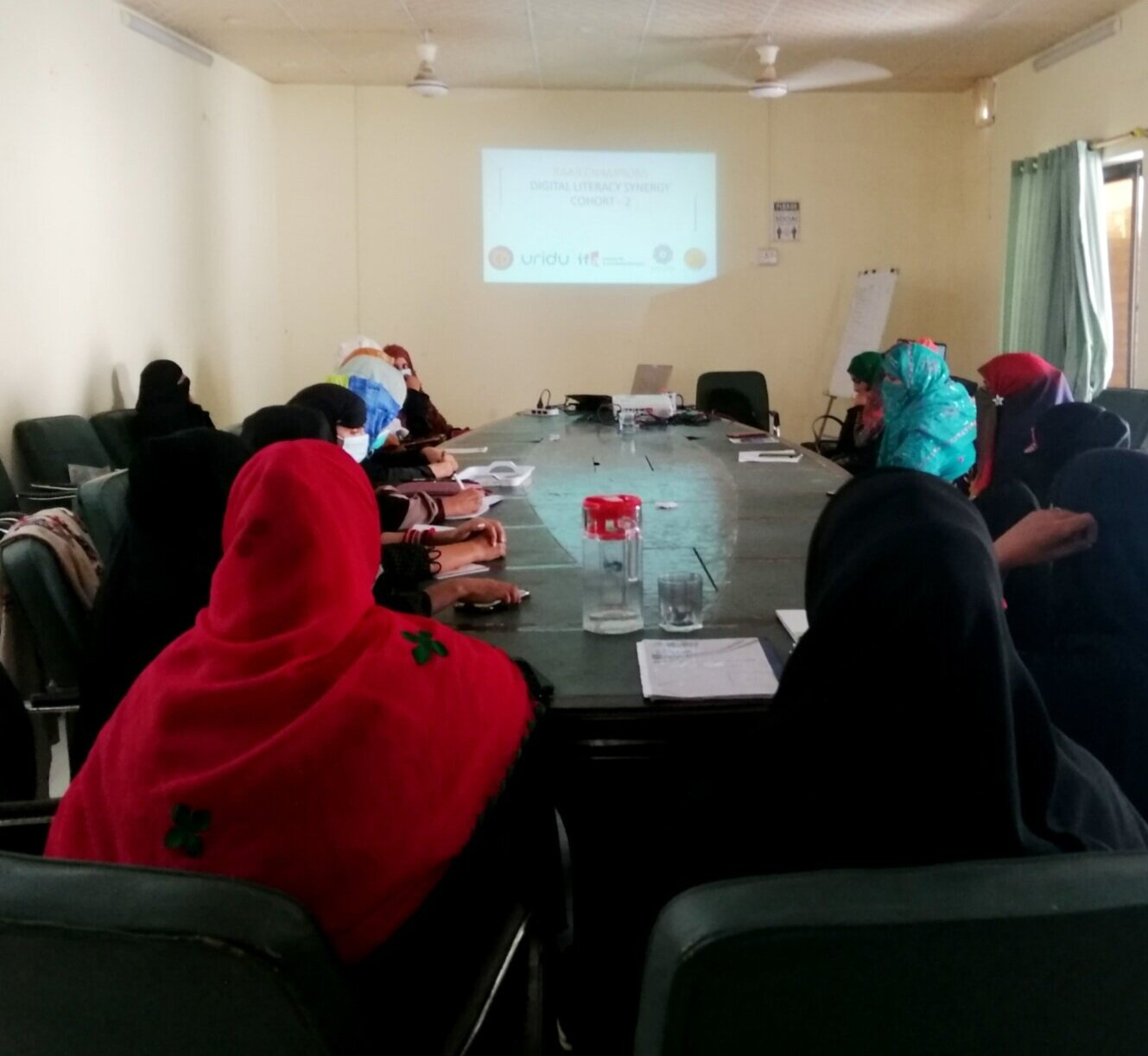Digital Literacy campaign continues with IFA & Uridu in Kamber
Nearly 20 more rural Women in Sindh are engaged through Digital Literacy training and data plans to begin promoting menstrual awareness in their villages using digital tools, smartphones and audio content.
After successfully carrying our first digital literacy training with SUCCESS Program, NRSP, TRDP, SRSO, Uridu, and IFA to bring reproductive health information to the most remote rural audiences of Sindh, we are back with new participants.
In the post pandemic world, Inadequate educational and economic opportunities, diminishing health services, and rising family responsibilities mainly affect girls and women. Considering the low digital literacy rates and unstable internet infrastructures in the rural areas, we sought to create an audio content on menstrual and reproductive health so that rural females could access the essential knowledge about their health and body, regardless of their literacy rates.
Within a month, audio lessons in the Listening Parties had reached nearly ten villages. All of this was made possible by our first Cohort, which consisted of ten rural community leaders. We taught them how to use digital tools and provided them with data plans and menstruation kits during the first Digital Literacy training.
To replicate this form of knowledge in other villages of Sindh, we hosted a Digital Literacy training with Cohort 2 on 3rd September, 2021 with the support of ifa (Institut für Auslandsbeziehungen), Uridu and our field partner, SRSO.
In this Cohort, we built capacity of nearly 20 new community leaders belonging to different villages and Union Councils of District Kamber-Shahdadkot and Larkana. Shaiwana Pathan, our Rural Innovation Specialist, led the session.
Following a quick introduction of the participants, the importance and need of digital literacy was explored. Participants also shared some reasons about urban and rural divide, especially during the COVID-19, when urban students could attend online classes, the rural schools did not have such curriculum or facility. Then, we conducted a pre-measurement survey to better assess the participants' present digital capacity.
We also talked about some benefits that digital platforms could bring, like open resources for education, online businesses, learning new things, running virtual and remote awareness sessions, and more importantly having tech knowledge could help rural females to represent themselves and their communities at a global level. When we asked the participants, they highlighted that tech know-how like browsing could help them to seek and apply for different jobs.
We wanted them to experience what we have already done for a digital solution in rural areas so we presented Raaji Rooms in the form of interactive videos and then Urbeli, the Raaji Room leader, spoke about how she used tech specially Zoom and Whatsapp to arrange an adolescent programme, virtual listening party and share her village sanitation infrastructure.
We moved on to present some common Apps like Whatsapp, Google, Youtube, Gmail and Zoom and asked participants to share what they already know and use. We got to know that Whatsapp and Youtube are more commonly used, while they only know about Gmail and Zoom but never used it.
To show the participants how they can browse/search any topic using browsers, we tested out Raaji Chatbot in Urdu. After that, we shared why they need a personal gmail and zoom accounts and shared steps to make these accounts. The Uridu and its digital solution Audiopedia were then introduced, and we highlighted what they do for marginalised women in different countries including Pakistan, India Uganda and other countries. We next delivered our first audio content for menstrual awareness in Sindhi, which is recorded in the voice of Uzma, and briefed the participants on how to record clear, noise-free audio, along with some important guidelines. We discussed what a Listening Party is and showed some listening parties that have been hosted by the first cohort. To raise menstruation awareness, the second cohort would also organize such community listening parties in their villages.
From this training platform, we were able to connect Cohort 2 with our partners and colleagues. We had a zoom call with Marcel and Felicitas Heyne, URIDU Founders, and Anjum Malik. They were so excited and happy to talk to the participants while sitting in different cities and countries.
At the end of the session, we provided the participants with one-month data plans so that we can connect and mentor them virtually, in spreading menstrual health knowledge.
.png)
.jpg)

.jpg)

